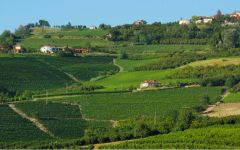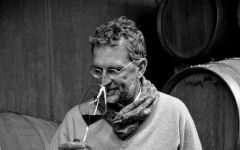Bongiovanni Barolo Pernanno 2004
Nebbiolo
-
Wine
Spectator
Sold Out - was $55.99
Ships Thu, May 2
You purchased this 12/12/23
0
Limit Reached
You purchased this 12/12/23


Product Details
Varietal
Producer
Vintage
2004
Size
750ML
Features
Boutique
Your Rating
Somm Note
Winemaker Notes
From select Nebbiolo fruit of one particular plot within the estate's finest vineyard. The grapes are left on the vines for several extra days after the regular Barolo is harvested, for even greater concentration. A gorgeously structured, velvety cru with the succulent fragrance of berries, fumé, leather, cassis and mint.
Professional Ratings
-
Wine Spectator
Great fruit on the nose, with blackberry, dark chocolate and fresh plum. Full and velvety-textured, with lots of fruit and ripe tannins. Long and beautiful. Very balanced. Impressive for the vintage. Best after 2012. 375 cases made
Other Vintages
2016-
James
Suckling
-
James
Suckling
-
Wine
Spectator -
James
Suckling
-
Wine
Enthusiast -
James
Suckling
-
James
Suckling -
Wine
Spectator -
Wine
Enthusiast
-
James
Suckling -
Wine
Spectator -
Robert
Parker
-
Wine
Spectator







The Bongiovanni farmstead ("cascina" in Italian; pronounced ka-shee'-nah) dates back to the early 1950s, when it was purchased by Giovanni Bongiovanni, a grass roots man with a profound instinct for soil potential. Giovanni planted a Nebbiolo vineyard where there had been nothing but untamed woodland: he struck gold, yet never got to bottle his own wine. The estate was left to his daughter Olga and it grew to cover premier hillside vineyards of Langhe. Grapes were all indigenous varieties with one noble “foreigner”, Cabernet Sauvignon. The latter – and a good number of other innovations – were due to Olga’s young nephew and winemaker, Davide Mozzone, who has also taken total surface under vine to the present 15.3 acres. Assisted by a top agronomist, Gian Piero Romano, Davide has styled the Bongiovanni range for the modern palate, while at the same time eliciting every ounce of character and extract from the unique langarolo terroir. Winery philosophy: minimizing outside intervention, maximizing character and steering clear of stereotyped wines.
WWH100486_2004 Item# 100486
